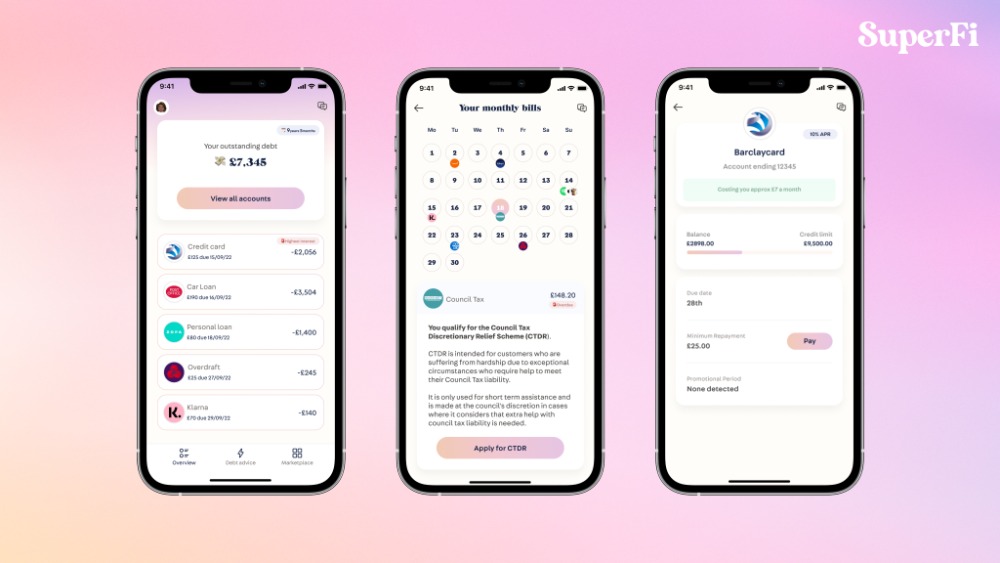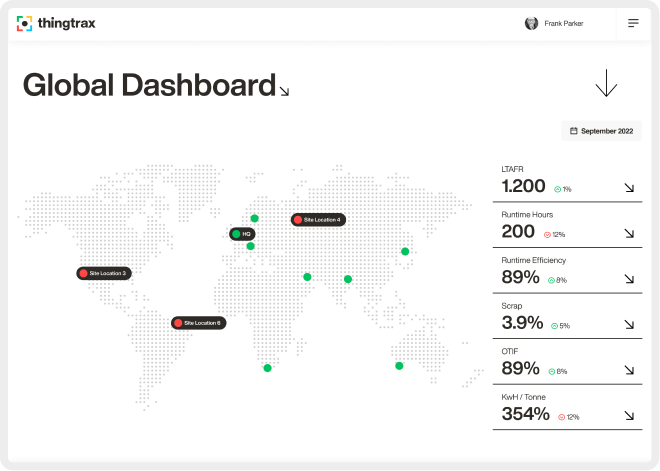5 Questions a Startup Should Ask Their Accountant

by Startacus Admin

Jessica Vella-Bone is the Digital Marketing Manager at Orange Genie, who provide Umbrella and Limited services to contractors and freelancers. Here she enlightens us on some of the things that startups need to ask their accountant.
Five Questions a Start Up Should Ask Their Accountant
It is often said that unfortunately over 50% of businesses are likely to fail in their first 5 years of trading. It’s not uncommon for this to be down to reasons such as tax penalties, poor budgeting and a lack of tax planning. Choosing the right accountant for you and your business really can be key to your company’s success. So what are the questions you should be asking a prospective accountant and what should they be doing for you?
-
What structure should I use?
This should be the first question you ask your accountant, as you need to know how you are going to trade. For a start-up, usually this is either as a limited company director or a sole trader.
A general rule of thumb is if your profits are likely to be over £25,000 a year and you are planning on working full time on your business, they are likely to recommend that you go limited.
Otherwise your accountant could recommend you trade as a sole trader to start with and reserve your company name with Companies House, so when it becomes more tax efficient for you to operate through a limited company, you will be able to incorporate your company with the name you would like.
The main difference is as a limited company director, the company is liable not yourself personally. Whereas a sole trader you would be liable for any business debts. As limited company owner you will have a little more paperwork to do than a sole trader but a good accountant will be able to explain this in more detail and ensure you are trading in the most tax efficient way for you.

-
What are my monthly accounting responsibilities?
This will vary depending on your trading structure and accountant. As a sole trader you will simply need to just keep on top of your accounting records, though you may find your accountant is happy for you to cram all your receipts in an envelope each month and will do your bookkeeping for you. Or they may ask you to input your invoices and receipts on an online portal or spreadsheet.
As a limited company owner, your other accounting responsibilities could include:
-
Making sure companies house is notified of any changes you have made to your company such as a change of address, issuance of more shares and changes to directors personal details.
-
Drawing your salary, expenses, benefits, dividends and directors loan
-
How do I claim expenses?
If the cost of a purchase is wholly and exclusively for the business you should be able to expense it. All this means is these are tax deductible costs, so you don’t pay tax on these purchases. For example, you only pay Corporation Tax on the profits of your limited company. Your profits would be your income minus any expenses.
Note that you are expected to keep your receipts and accounting records for at least 6 years incase of an investigation by HMRC.

-
When would my taxes be due?
The most likely taxes you are to encounter are:
-
Self-assessment tax return - As a sole trader and a director of a limited company you would need to complete a self-assessment tax return by the 31st January the year after the end of the tax year in question. This will settle your personal tax liabilities such as your salary or dividends that have been drawn from your limited company or as sole trader paying the tax you owe on the profits of your business.
-
Corporation Tax- Your corporation tax is due within 9 months and 1 day of your ‘normal due day’ which is usually the day your company was formed.
-
VAT – If your turnover more than £83,000 in a 12 month period you will need to register for VAT. Normally a VAT return is due to HMRC every quarter though this does depend on the scheme you are registered on.
-
PAYE/ National Insurance Contributions – If you are taking a salary from your company you may need to pay income tax and National Insurance Contributions, these are paid to HMRC either on a monthly or quarterly basis.

-
What should an accountant be doing for me?
You could be mistaken to think your accountant is just there to reduce your tax bill and fill out all those pesky tax forms. However though this is indeed true, there are also another number of services and support functions which an accountant could provide. Some of these are:
-
Help with completing your tax forms on time – if you are operating as a sole trader it is easy to think you could fill out your tax return on your own, though what you need to make sure is that it is filled out accurately and on time. Being just a minute late for your Self-Assessment Tax Return could cost you £100.
-
Making sure you are operating as tax efficient as possible – with tax laws changing all the time and new incentive schemes being set up by the government and accountant will be able to keep you up to date and be able to suggest legal ways you could reduce your tax bill.
-
Help to grow your business – A good accountant will want your business to succeed as it will also be a reflection on them and their practice. With their wealth of experience with small businesses, they will be an invaluable business advisor.
-
Help you with deal with your business problems – Your accountant is likely to be well connected so even if your issue isn’t accountancy related they can probably put you in touch with someone who can help.
-
Time saving – Most importantly your accountant will save you time, so you can focus your efforts on generating leads, growing your client base and the general day to day running of your business.
Many thanks to Jessica Vella-Bone for this eye-opening piece! Jessica is the Digital Marketing Manager at accountancy service Orange Genie and has a passion for all things writing, marketing and anything digital.

Subscribe to our newsletter
If you would like to receive our startup themed newsletter, full of the latest startup opportunities, events, news, stories, tips and advice, then sign up here. How Manufacturing Businesses Can Reduce Energy Costs
How Manufacturing Businesses Can Reduce Energy CostsGot a business in the manufacturing sector? These tips on how you can reduce energy costs while being more sustainable are well worth a read...
 SureIn Secures €4M to Close the SMB Insurance Gap
SureIn Secures €4M to Close the SMB Insurance GapInnovative InsurTech startup SureIn announces a €4M Seed round to further its mission of making insurance easy, transparent and hassle-free for SMBs.
 How IoT Is Revolutionising Consumers' Daily Lives
How IoT Is Revolutionising Consumers' Daily Lives Nassia Skoulikariti, Director of IoT Programmes, Mobile Ecosystem Forum shares some insights on how IoT is having a significant impact on all our lives.
 How to invest in tech companies with the help of AI
How to invest in tech companies with the help of AIRoger James Hamilton, Founder and CEO of Genius Group, a world-leading entrepreneur Edtech and education group, discusses how introducing a globalized curriculum will help better prepare students.
 SuperFi raises $1M pre-seed funding round
SuperFi raises $1M pre-seed funding roundSuperFi, the debt prevention platform, has announced a $1m pre-seed funding round to support people during the cost of living crisis.
 Startups rely on AI & sustainability for new partnerships
Startups rely on AI & sustainability for new partnerships41 startups from 13 countries, including the UK, have been selected for the 8th Kickstart Innovation program, one of Europe’s leading innovation platforms.
 Another Round closes £300k Seed round to revolutionise personal training
Another Round closes £300k Seed round to revolutionise personal trainingPersonal training platform Another Round has secured £300k in its latest fundraise, including investment from angels and its community.
 Thingtrax Secures £4.3M
Thingtrax Secures £4.3MThingtrax Secures £4.3M to Empower Manufacturers to Build the Factories of the Future
 A measure of inflation relief for small firms
A measure of inflation relief for small firmsA measure of inflation relief for small firms sees transport costs fall but service price increases remain elevated
 A look at HR tech startup HR DataHub
A look at HR tech startup HR DataHubBedfordshire-based HR tech startup HR DataHub has built a range of tools for HR departments
Published on: 8th July 2016
If you would like to enable commenting via your Startacus account, please enable Disqus functionality in your Account Settings.







- SureIn Secures €4M to Close the SMB Insurance Gap 15th Aug 2023 Innovative InsurTech startup SureIn announces a €4M Seed round to further its mission of making insurance easy, transparent and hassle-free for SMBs.
- SuperFi raises $1M pre-seed funding round 28th Jul 2023 SuperFi, the debt prevention platform, has announced a $1m pre-seed funding round to support people during the cost of living crisis.
- Startups rely on AI & sustainability for new partnerships 27th Jul 2023 41 startups from 13 countries, including the UK, have been selected for the 8th Kickstart Innovation program, one of Europe’s leading innovation platforms.
- Another Round closes £300k Seed round to revolutionise personal training 21st Jul 2023 Personal training platform Another Round has secured £300k in its latest fundraise, including investment from angels and its community.







 Daniel Dierkes, David Schara, and Maximilian Geißinger 2.jpeg)

.jpg)




















